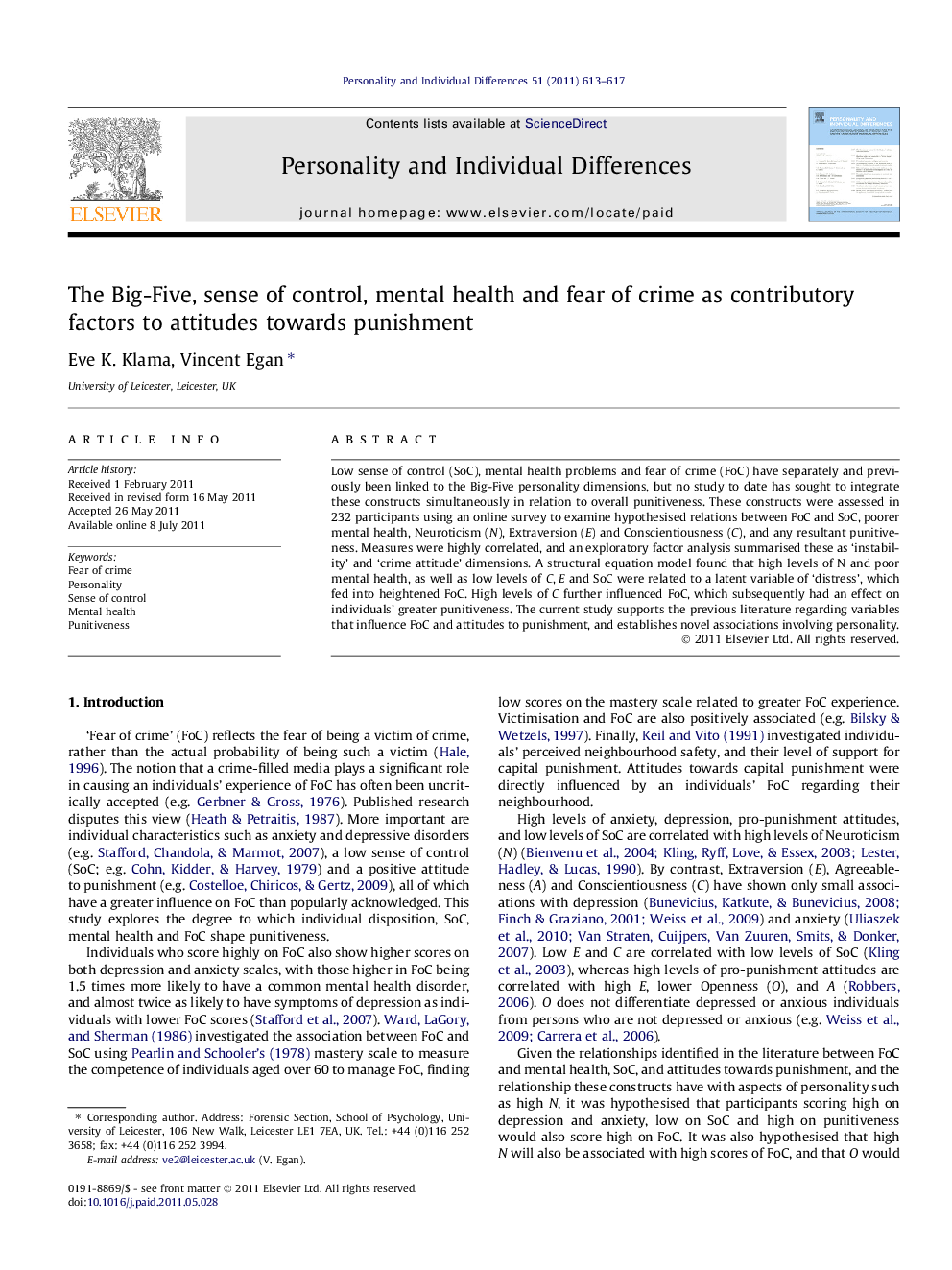| Article ID | Journal | Published Year | Pages | File Type |
|---|---|---|---|---|
| 891183 | Personality and Individual Differences | 2011 | 5 Pages |
Low sense of control (SoC), mental health problems and fear of crime (FoC) have separately and previously been linked to the Big-Five personality dimensions, but no study to date has sought to integrate these constructs simultaneously in relation to overall punitiveness. These constructs were assessed in 232 participants using an online survey to examine hypothesised relations between FoC and SoC, poorer mental health, Neuroticism (N), Extraversion (E) and Conscientiousness (C), and any resultant punitiveness. Measures were highly correlated, and an exploratory factor analysis summarised these as ‘instability’ and ‘crime attitude’ dimensions. A structural equation model found that high levels of N and poor mental health, as well as low levels of C, E and SoC were related to a latent variable of ‘distress’, which fed into heightened FoC. High levels of C further influenced FoC, which subsequently had an effect on individuals’ greater punitiveness. The current study supports the previous literature regarding variables that influence FoC and attitudes to punishment, and establishes novel associations involving personality.
► Distressed crime victims have high N, low C and E, low Sense of Control and poorer mental health. ► High levels of distress and high C increase a person’s Fear of Crime. ► Fear of crime directly influences an individual’s punitive attitudes towards offenders. ► Punitive attitudes reflect a valid desire by the victimised to regain order in how they view the world.
